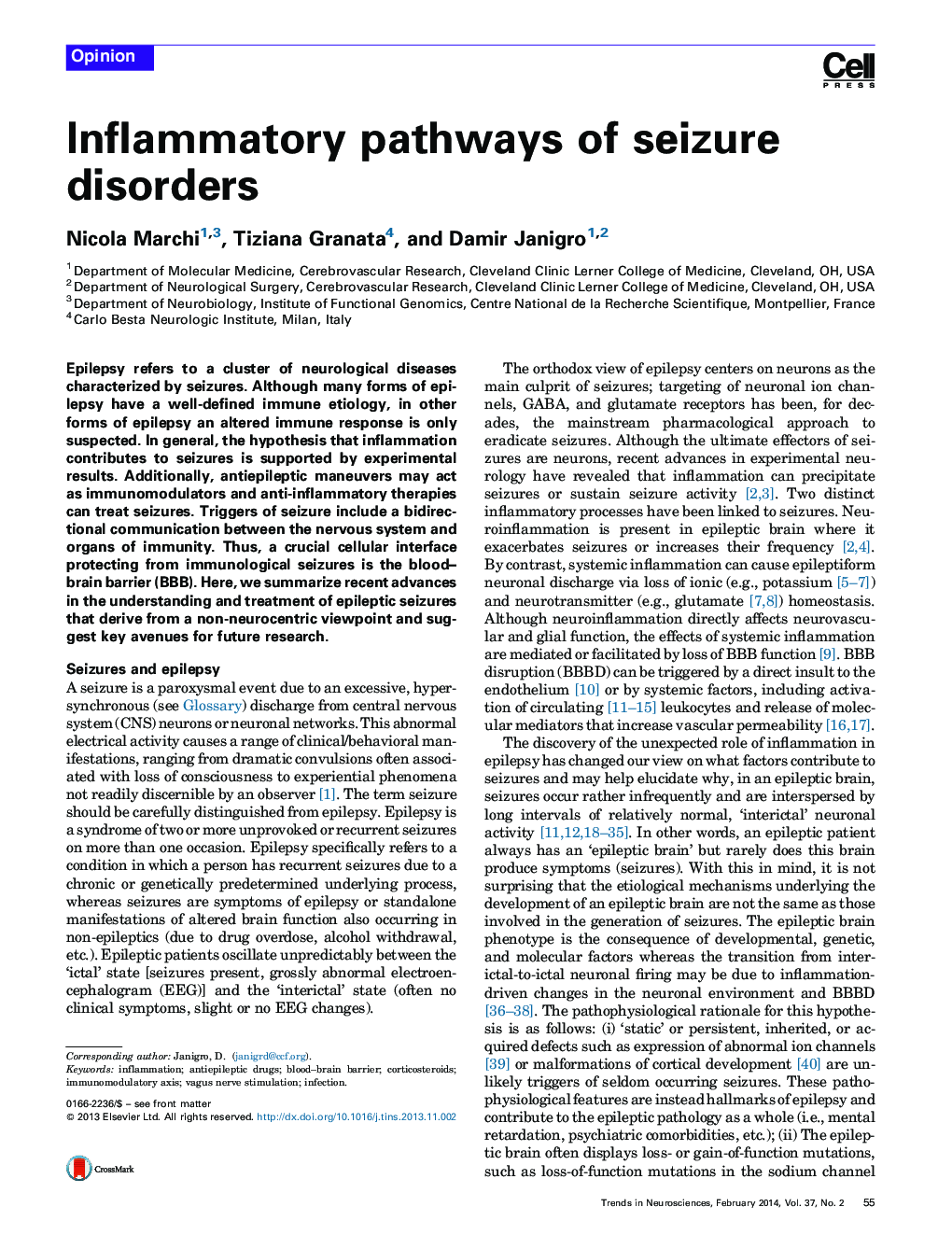| Article ID | Journal | Published Year | Pages | File Type |
|---|---|---|---|---|
| 4354199 | Trends in Neurosciences | 2014 | 11 Pages |
•Traditional and novel anti-epileptic treatments encompass immunomodulatory effects.•Acute and chronic immunological triggers contribute to acute and chronic seizures.•Etiological factors of seizure disorders include brain and peripheral proinflammatory changes and their interplay.•The blood–brain barrier (BBB) is a dynamic interface between the central nervous system (CNS) and the periphery.•The BBB reacts to pro-inflammatory stimuli from either the brain or periphery.
Epilepsy refers to a cluster of neurological diseases characterized by seizures. Although many forms of epilepsy have a well-defined immune etiology, in other forms of epilepsy an altered immune response is only suspected. In general, the hypothesis that inflammation contributes to seizures is supported by experimental results. Additionally, antiepileptic maneuvers may act as immunomodulators and anti-inflammatory therapies can treat seizures. Triggers of seizure include a bidirectional communication between the nervous system and organs of immunity. Thus, a crucial cellular interface protecting from immunological seizures is the blood–brain barrier (BBB). Here, we summarize recent advances in the understanding and treatment of epileptic seizures that derive from a non-neurocentric viewpoint and suggest key avenues for future research.
